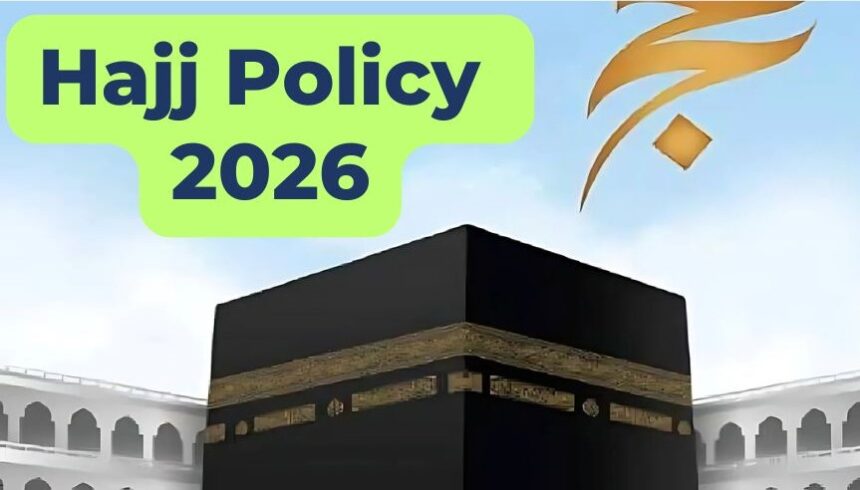**Pakistan Introduces Major Reforms in Hajj Policy 2026 to Streamline Pilgrimage Process**
The Government of Pakistan has unveiled the Hajj Policy 2026, introducing sweeping reforms to simplify the pilgrimage process, enhance transparency, and improve services for Pakistani pilgrims. Announced by Federal Minister for Religious Affairs Sardar Muhammad Yousaf and approved by the federal cabinet, the new policy covers eligibility, financial arrangements, management systems, and digital oversight to provide a smooth Hajj experience.
Under the new policy, Hajj applications will open from August 4. Pakistan’s tentative Hajj quota for 2026 is set at 179,210 pilgrims, pending final confirmation from Saudi authorities. Of these, 119,210 seats are allocated to the government scheme, while 60,000 will be managed by private sector operators.
The government scheme will cater to different needs by offering both extended (38–42 days) and shorter (20–25 days) Hajj packages. Applicants must be Pakistani Muslims with passports valid at least until November 26, 2026. In a significant change, children under 12 are barred from performing Hajj this year. Additionally, all participants are required to agree to the mandatory animal sacrifice through Saudi Arabia’s official system.
To ease the financial burden, payments under the government scheme will be made in two installments, based on the selected package. Estimated costs range from Rs. 1.15 to 1.25 million, depending on final agreements with Saudi service providers. The upfront installment is set at Rs. 500,000 for the long package and Rs. 550,000 for the short package, payable at authorized banks starting August 4. Selection of pilgrims will follow a “first come, first served” approach to avoid delays.
Special provisions have been made for overseas Pakistanis, allowing them to send payments via designated government bank accounts. Travel eligibility is tied to receiving approved Saudi vaccines. The “Route to Makkah” pre-clearance system, currently available at Islamabad and Karachi airports, will continue to facilitate easier travel.
Significant reforms extend to private Hajj operators, who are now subject to stricter financial monitoring. Dependent Hajj Companies (DHCs) can book overseas Pakistanis if full payments are remitted through legal foreign exchange channels, with all transactions and applicant data tracked digitally via the Ministry of Religious Affairs portal. DHCs must also comply with IT regulations and formalize service agreements with the ministry. Both government and private operators will undergo independent performance reviews by third parties.
Technology is at the heart of the 2026 policy. A centralized digital system, managed by the Punjab IT Board and under the supervision of the Ministry of IT & Telecom, will provide real-time monitoring of pilgrim data, payments, bookings, and complaints. This robust platform is designed to prevent delays, facilitate quick complaint resolution, and enhance accountability.
To ensure high service standards, trained teams from the Ministry of Religious Affairs will supervise Hajj operations. Welfare staff will accompany pilgrims, and comprehensive pre-departure training will be provided, covering Hajj rituals, dress code, and emergency protocols.
Additional support measures include the continuation of the Hajj Mohafiz (Protector) Scheme, which offers financial compensation for losses. Pilgrims will also have access to information and assistance through help lines and the Pak Hajj App, while emergency response teams will be deployed as needed.
To uphold integrity and transparency, the policy introduces stringent financial oversight and a structured complaints system, enabling prompt reporting and resolution of issues. Final instructions and guidelines will be issued to all stakeholders to ensure smooth implementation of the new rules.
Through these comprehensive reforms, the government aims to make Hajj 2026 a smoother, safer, and more accessible religious journey for all eligible Pakistanis.











